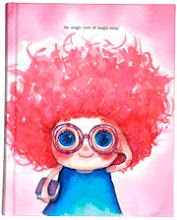Pyle, described as a ‘quiet American’ is a symbol of America’s insidious impact upon Vietnam’s history. He orchestrates a Third Force to battle Ho Chi Minh’s forces and the French and her allies. In the early stages of the novel, Pyle’s innocence is described with a sense of foreboding:
‘Go in and find a table. I had better look after Pyle.’ That was my first instinct-to protect him. It never occurred to me that there was greater need to protect myself. Innocence always calls mutely for protection when we would be so much wiser to guard ourselves against it innocence is like a dumb leper who has lost his bell, wandering the world, meaning no harm.’ 36
The unreality of war--the emotional distance between military and civilian is captured by this theme of innocence. Actions performed without regard to effect show the lack of understanding. Chilling imagery is conjured by Greene’s sparse writing style. A metaphoric depiction of bodies strewn in a ditch as an irish stew haunts the reader. It represents a hodgepodge cross-section of society who have unwittingly become part of bloodshed. The love relationship between Phuong and the two journalists highlights the impact of French colonialism and the reality that no matter how impartial Fowler seeks to be, neutrality is unattainable where human emotion is involved.

7 comments:
Beautiful review... much more composed than my emotional jibber jabber. I'm glad you liked the book. :)
sara, wouldn't have picked it up without your reassuring introduction. thanks :)
i think it is not only the human emotion that makes him inevitably "engage", but also the fact that the human condition demands us to alter our actions to serve our interests, and also the fact that inaction, in Fowler's case, was a form of action, since one who stands by and does nothing as innocents die is just as guilty
The Quiet American of Graham Greene , is a master piece of fiction .. a well blended work ..
Greene appears to share the idea, which has been floating around ever since Baudelaire, that there is something rather distingué in being damned; Hell is a sort of high-class nightclub, entry to which is reserved for Catholics only.
Mr. Greene is a story-teller of genius. Born in another age, he would still be spinning yarns...His technical mastery has never been better manifested than in his statement of the scene -- the sweat and infection, the ill-built town which is beautiful for a few minutes at sundown, the brothel where all men are equal, the vultures...the snobbery of the second-class public schools, the law which all can evade, the ever-present haunting underworld of gossip, spying, bribery, violence and betrayal...the affinity to the film is everywhere apparent. It is the camera's eye which moves from the hotel balcony to the street below, picks out the policeman, follows him to his office, moves about the room from the handcuffs on the wall to the broken rosary in the drawer, recording significant detail. It is the modern way of telling a story...
...Catholicism as a public system of laws and dogmas is far from being an adequate key to Greene's fiction. There is a good deal of evidence, internal and external, that in Greene's fiction Catholicism is not a body of belief requiring exposition and demanding categorical assent or dissent, but a system of concepts, a source of situations, and a reservoir of symbols with which he can order and dramatize certain intuitions about the nature of human experience — intuitions which were gained prior to and independently of his formal adoption of the Catholic faith. Regarded in this light, Greene's Catholicism may be seen not as a crippling burden on his artistic freedom, but as a positive artistic asset.
Post a Comment